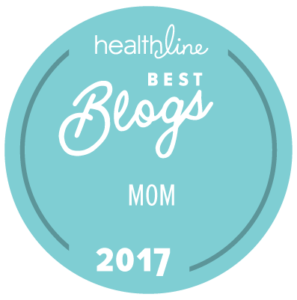- Written by Rebecca Gower, B.A, M.A., DSHM(hons)
note: this article is adapted from my article in Vitality Magazine. You can find the original article at http://www.vitalitymagazine.com/mar10_homeopathy
Candidiasis is caused by the overgrowth of a common type of yeast called Candida Albicans that occurs naturally in the body. In most cases, a healthy immune system can keep the balance between good bacteria and fungus such as Candida in check. Candida can occur anywhere in the body, but it is most commonly found in areas where there are mucous membranes such as the vaginal tract, rectum and throat. Some causes of overgrowth of Candida can include prolonged use of antibiotics, the Birth Control Pill (BCP), eating refined sugar and processed foods too often as well as immune suppression.
note: this article is adapted from my article in Vitality Magazine. You can find the original article at http://www.vitalitymagazine.com/mar10_homeopathy
Candidiasis is caused by the overgrowth of a common type of yeast called Candida Albicans that occurs naturally in the body. In most cases, a healthy immune system can keep the balance between good bacteria and fungus such as Candida in check. Candida can occur anywhere in the body, but it is most commonly found in areas where there are mucous membranes such as the vaginal tract, rectum and throat. Some causes of overgrowth of Candida can include prolonged use of antibiotics, the Birth Control Pill (BCP), eating refined sugar and processed foods too often as well as immune suppression.
For many, especially women, systemic Candidiasis can seriously impact your quality of life. Many of us associate Candida with those annoying and dreaded yeast infections. Common symptoms of a yeast infection can include burning and itching in the vagina or around the vulva, as well as a thick/whitish discharge. Candida can also occur in the throat where it is called thrush. This can affect newborn babies as well as people with weak immune systems. Symptoms of thrush can include white patches that look like cottage cheese or red spots along with a sore throat, pain while swallowing and loss of appetite. Because an overgrowth of Candida can lead to such a wide range of symptoms that will differ from person to person, it is often very difficult to diagnose. Many conventional doctors may treat symptoms, such as yeast infections or thrush, but will tend not to view the connection between Candida and these symptoms. Furthermore, there is no accepted medical test available outside of allergic antibody testing to determine an overgrowth of Candida. A systemic Candida infection can lead to a wide variety of symptoms such as;
- Digestive Symptoms: (pain, gas, bloating, constipation, diarrhea, mucous in the stool)
- Itching (skin, ears, vagina, rectum)
- Skin problems (acne, eczema)
- Mood changes (anxiety, depression, mood swings, poor concentration, poor memory, difficulty in focusing)
- Reproductive health (PMS, painful menstruation, infertility, low libido)
The Candida Diet
Many Complementary and Alternative Medicine (CAM) practitioners advocate that patients who suspect they may be suffering from follow the Candida diet for a specific period of time- usually 3 to 6 months. Key aspects of the diet include;
- The removal of sugar: Candida feeds off of sugar which includes foods that your body converts into sugar such as simple carbohydrates (fruit, potatoes, white rice and pasta). This makes the diet extra challenging because you have to eat mostly protein and vegetables
- Avoiding fermented foods: Mushrooms, vinegars, most condiments and even cantaloupe can also contribute to the growth of yeast
- Avoiding other trigger foods: This includes aged and mouldy cheeses, foods that contain yeast or mould such as breads, muffins, baked goods; honey, syrups and glutinous foods such as barley, oats, wheat and rye.
- The introduction of a probiotic such as acidophilus to help restore the balance of bacteria in the body especially in the gastrointestinal system.
Why Didn’t The Candida Diet Work for Me?
The Candida Diet can be successful for cases of mild to moderate Candida. In fact, for people with mild symptoms simply going off refined sugar for a month or two can really help. So, dietary changes can play an important role in decreasing and eliminating symptoms of Candida. However, in my practice, I treat a lot of people with Candida and repeatedly hear how the diet did not alleviate or remove their symptoms completely. For many people, candida infection can not be resolved by diet alone. This is where Homeopathic Medicine can be very useful.
Homeopathic Medicine is holistic because it takes into consideration your unique experience of disease on the mental, emotional and physical levels. Homeopathy works by prescribing one remedy that is the closest match for your symptoms of Candida. For example, if you main complaint is recurrent yeast infections, I want to know a lot of information about your unique experience of yeast infections. Some questions I might ask include when do you get them, what do they feel like? (do they itch, burn, sting?) and what does the discharge look like. Each person with Candida will have more symptoms than simply a tendency to yeast infections that a Homeopath will take into consideration. As a Homeopath, I am also interested in you as a whole person, so I will ask question about your sensitivity to cold or heat, how different types of weather may affect you, patterns of perspiration, sleep, digestion and much more.
There are several advantages to homeopathic treatment which include;
- Safe, gentle and effective medicine: Homeopathy is safe for people of all ages from newborns to pregnant women to the elderly. Homeopathic medicines are made in such a way that they won’t interact or interfere with other medications. In addition, there are no side effects to worry about and in many cases, chronic Homeopathic treatment can reduce the frequency and intensity of side effects from pharmaceutical medications.
- Reduces Susceptibility to Illness: Homeopathic Medicine is the only system of medicine that I know of that actually reduces the frequency and intensity of ailments that may plague people. This means that it will reduce how often you may get those dreaded colds, sinus infections and yes, yeast infections.
- Cost Effective: Homeopathy medicines are very inexpensive. Homeopaths also focus on finding the one medicine that is the best match for you. This means that we don’t ask you to spend a lot of money in supplements and vitamins except in cases of deficiency such as anemia.
- Clinical Evidence: In addition to a wide range of scientific studies on Homeopathy, there is over 200 years of clinical evidence that Homeopathy works. In my practice, I have seen how Homeopathic treatment can help eliminate yeast infections as well as a wide range of symptoms that can accompany candidiasis.
Rebecca Gower, B.A, M.A., DSHM(hons) is a Homeopathic Physician who was cured of her symptoms of Candida using Homeopathic Medicine. She runs her clinic, Red Pearl Homeopathy, in downtown Toronto. For more information, she be reached at 647-688-8290 or send her an e-mail toredpearlhomeopathy@gmail.com. You can also check out her website at www.redpearlhomeopathy.com.









